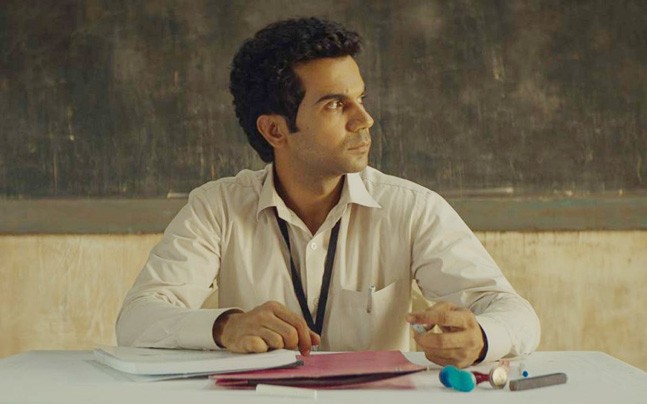Newton’s Harsh Portrayal of Democracy Is Exactly Why Its Oscars Entry Is Important
What really works for Newton is the fact that it lays bare the pitfalls of the democratic system in India, and has yet made it to the Oscars as India's official entry.

Amit Masurkar’s latest movie, Newton, released last month and has done well for itself in the box office.
Reviews of its impeccable writing and having an incredible cast have followed. It is now India’s official entry for Oscars 2018.
When I read an urban Adivasi’s perspective on Newton, a lot of things made sense. Much like Lagaan, it almost feels as if Newton clears the litmus test of entering the Oscars by being a quintessential ‘representation’ of India.
Nolina Minj lists down these quintessential elements as being the ‘unfailing poverty, backwardness, and marginality of Adivasi communities in India.’
That said, the character of Newton, played by Rajkummar Rao, also has its shortfalls. “As Newton walks into the heartlands of Naxalism, he is intrinsically in a position of privilege as an educated, peri-urban man who is an employee of the State,” Nolina writes for Round Table India.
Despite being set in the Maoist-ridden forests of Dandakaranya, Chhattisgarh, Newton can also seem to be slightly unperceptive in its portrayal of the lives of the Gonds living there. It is as though the same portrayal would work for any other region rife with an insurgency in India, with a community such as the Gonds having absolutely no power.
However, what really works for Newton is the fact that it lays bare the pitfalls of the democratic system in India, and has yet made it to the Oscars as India’s official entry.

Through its characters, the movie cleverly highlights the ideological divide on democracy that currently exists in the country. Is holding elections every five years enough for the country to achieve a democratic state? The indelible ink on the tribal voters is nothing more than an empty reassurance to the State that their ‘right’ to vote has been exercised.
As a film, Newton tries to be subversive by commenting on issues like class divide, child marriage, dowry, corruption, media deception and bribery.
It does so especially through the war of wits and words between the characters of a dictatorial armed officer and an idealistic government clerk, along with powerhouse performances by the rest of its cast, especially Malko Netam.
Malko, an Adivasi schoolteacher, played by Anjali Patil, compensates for the unperceptive portrayal mentioned earlier. It is she who educates Newton, and indirectly the urban middle class that they know nothing about the tribals of their own country.
Through the character of Atma Singh, Newton comments on another enemy of the State – dissent. From where they stand, the Maoist-ridden forests are Pakistan. Atma Singh’s gun is his only identity. More so, it validates his identity – the defender of his nation – without any room for irony.
To an extent, Newton’s character’s idealness also helps highlight the two-facedness of the State when it comes to democracy.
It also tells us how this very idealness isn’t going to turn things around for the better either. But then again, the movie doesn’t intend to provide answers. It merely wants the audience to introspect, while it underlines the farce that our democracy sometimes is.
However, to think such a film passes official considerations and is sent as India’s representation, is a bright spot for India, and its democracy.
Like this story? Or have something to share?
Write to us: [email protected]
Connect with us on Facebook and Twitter.
NEW: Click here to get positive news on WhatsApp!
If you found our stories insightful, informative, or even just enjoyable, we invite you to consider making a voluntary payment to support the work we do at The Better India. Your contribution helps us continue producing quality content that educates, inspires, and drives positive change.
Choose one of the payment options below for your contribution-
By paying for the stories you value, you directly contribute to sustaining our efforts focused on making a difference in the world. Together, let’s ensure that impactful stories continue to be told and shared, enriching lives and communities alike.
Thank you for your support. Here are some frequently asked questions you might find helpful to know why you are contributing?


This story made me
-
97
-
121
-
89
-
167











